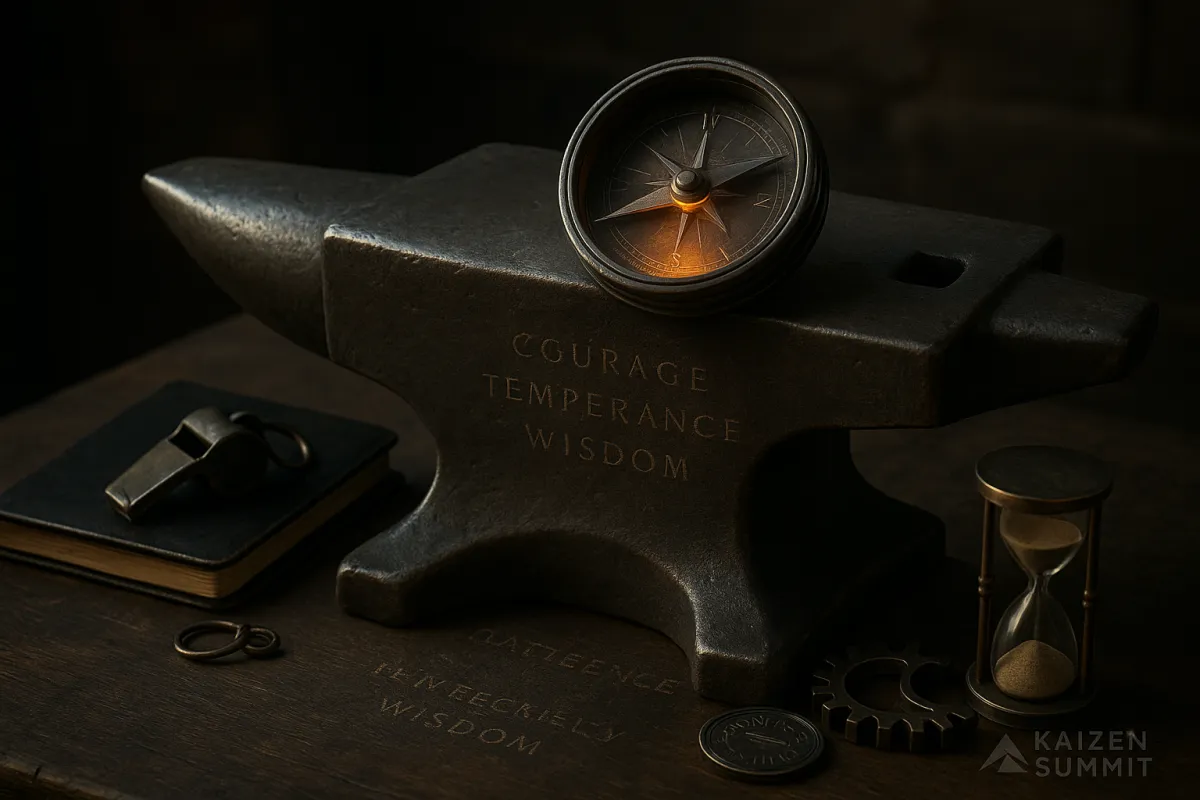
Resilient Leadership Through Systems
Resilient Leadership Through Systems
Leadership demands more than technical skill, it demands resilience. In today’s fast-changing environment, resilient leaders draw strength from three practices: proactive coaching or mentoring, Stoic reflection and disciplined service. These habits anchor your ability to guide others when pressure mounts.
Proactive Coaching as Your Foundation
Too often coaching arrives only after problems emerge. A preventative coaching culture shifts that dynamic. When you embed regular peer support and one-to-one sessions, you create a space for honest reflection before issues escalate. This Structured Guidance encourages emotional intelligence, reduces burnout and cements a mindset of servant leaders who learn not just to solve their own challenges, but to uplift others.
Cultivating the Stoic Leadership Reflex
Stoicism offers more than historical theory, it provides a framework for composure under fire. The core practice is simple: focus only on what lies within your influence. When setbacks occur, pause to debrief and align your response with core values. This “leadership reflex” transforms reactive instinct into measured action. Over time, such repetition builds Physical Resilience, a steady confidence that carries you through uncertainty.
Stoic Virtues in Modern Practice
Contemporary voices like Ryan Holiday have brought Stoicism into the leadership mainstream. His books show how virtues such as temperance, wisdom and resilience become practical tools. Rather than suppressing emotion, Holiday’s approach teaches leaders to observe feelings without surrendering to them. This calm under pressure deepens Community Connection as teams trust a leader who remains even-keeled in crisis.
Designing Deliberate Service Leadership
Resilience thrives when discipline meets reflection in the service of others. Start by creating debrief rituals after key decisions, short sessions where you and your team review outcomes and lessons learned. Next, introduce brief daily reflection moments, an “inner boardroom” where you align actions with purpose. These practices sharpen Skill Mastery as you translate insights into improved behaviours.
Humility and Ownership in Action
Stoic leaders model ownership and accountability. When things go well, they credit the team. When mistakes happen, they own them. This humility builds trust and shows that leadership is not about ego but about shared purpose. Over time, consistent honesty and values-aligned decisions cultivate a culture where resilience becomes a collective asset.
Sustaining Momentum Through Discipline
Discipline without reflection leads to rigidity; reflection without discipline leads to indecision. The fusion of both creates unshakeable resolve. Each week, schedule a brief coaching check-in, a Stoic pause and a values-review. Treat these as non-negotiable commitments. As you honour them, you reinforce Continuous Improvement, every cycle of reflection and action deepens your capacity to guide others.
Why This Matters Now
Organisations that shift from reactive firefighting to sustained service-oriented leadership see profound benefits. Teams report higher engagement, decision-making grows clearer and resilience under pressure becomes embedded across all levels. In a landscape of relentless change, these practices transform challenges into opportunities for growth.
Call to Reflect and Apply
Choose one practice this week: schedule a coaching or mentoring session, try a two-minute pause before a meeting or lead a short team debrief. Notice how it affects your mindset and connection. Over time, these small, disciplined steps compound into a leadership style defined by calm resolve and continuous growth.
Start today. Lead with service, reflect with honesty and forge your resilience through disciplined practice.
